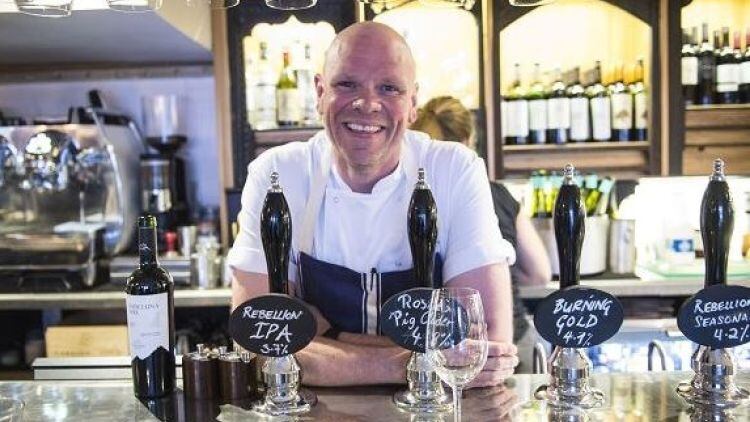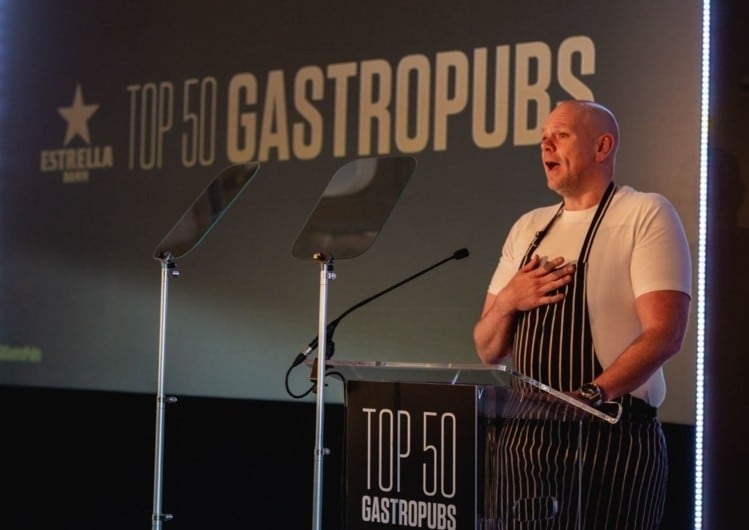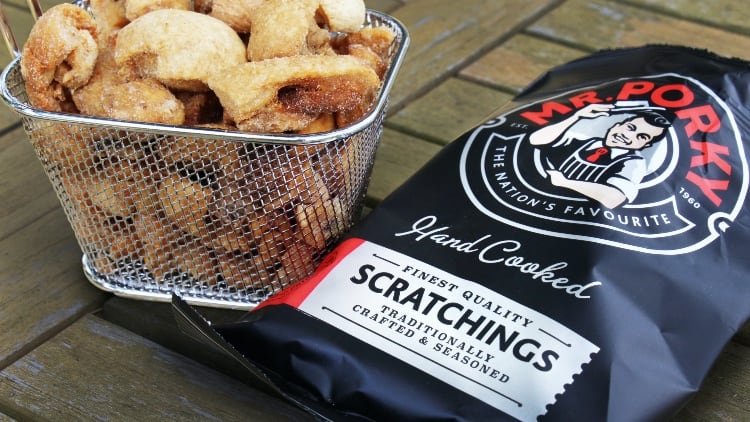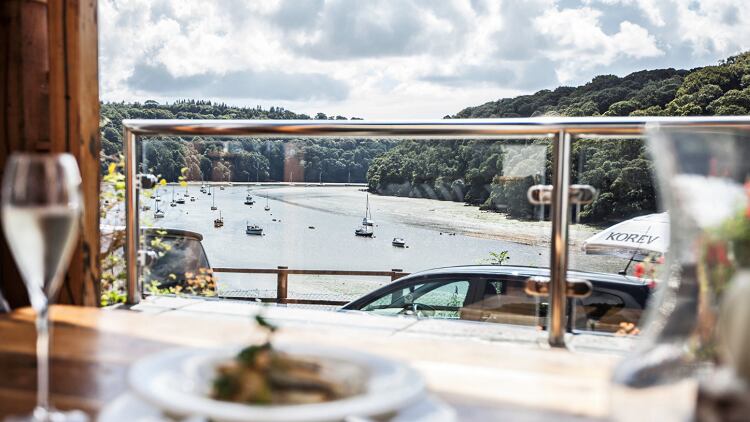The programme, which aired Thursday 12 November on BBC2, aims to highlight the plethora of different issues pubs face when operating when filming began prior to the coronavirus pandemic hitting the UK.
Kerridge visits Amy and Ian Durnell, who run the White Hart Inn, Chilsworthy in Cornwall which one patron said was key to the community.
The pub has a strong local base but it appeared that isn’t enough to make the business work well and there were areas that could be improved upon to widen the demographic.
Amy gets up about 6.30am to get things ready in preparation for opening at 11am and partner Ian is also a commercial gas engineer alongside running the pub.
Kerridge stated the restaurant area of the pub needed some TLC such as the dining area, which at points was very quiet compared to the bar where the locals gathered.
He suggested exploiting the view of the Cornish countryside could making the venue into a destination pub and therefore, make it more profitable.
The couple also revealed they took £75 a week each, which Kerridge said was the same amount of money him and wife Beth paid themselves for the first three or so years of their business.
However, Amy admitted running the pub was putting a strain on her and Ian. She said: “We have sacrificed our relationship for this pub and it still isn’t making money.”
Kerridge outlined how the pub had become everything for couple and called upon them to delegate more.
Music reputation
From Cornwall to Gloucestershire, Kerridge visited Miles Connolly and Lottie Lyster who run the Prince Albert in Stroud – a tied Punch pub – and he urged them to increase prices to cover the tied costs.
Miles said: “It used to be the case that every night would be busy but now you have to go out and find your audience and get them in.”
For more than 20 years, the pub has gained a reputation for live music attracting locals and music fans from afar.
Miles revealed while there is good footfall at the pub, with a turnover of £350,000, the couple make a profit of just £3,000.
Kerridge gave the duo two tips – one was to monitor all the beer we are drinking, staff or at the end of the night.
Look at the price of beers, what price do they have to be to make the profit margin we need, put the beers on at that price, not say a word to anybody
Back at the White Hart, the programme showed work was underway to change the layout with the carvery removed and a new ladies toilet being fitted.
Amy said the locals had voiced mixed thoughts on the changes with excitement and trepidation.
She added: “It’s not disrespectful but we can’t just rely on local trade. We need to do a bit more.”
Kerridge then travelled to the capital where he visited the Golden Anchor in Nunhead, south London.
Run by Lana Bewry since 1988, the demographic of the pub was split into two halves – domino and pool games and a dance hall.
Many of these patrons bought a pint or two in the hours they were visiting, highlighting the need for staple customers but also the need to draw in more members of the community too, making the pub a place for all
Lana said: “On a good night, it’s [the dance hall] busy and there’s no feeling like it, we get a lot of those feelings but we could do with more. Midnight until 2am twice a week can’t pay the bills, when it’s quiet
“A lot of Jamaicans come here and drink and that’s what we are known for. It used to be a drugs pub. I was terrified but I wasn’t going to have it.”
While the domino players appeared to be the backbone of the trade at the pub, Lana admitted it wasn’t enough to be financially viable.
She said: “The financial situation is dire and if we don’t see a massive improvement and we will have to call it a day. It is embarrassing. I made arrangements with VAT man to pay weekly. It’s £5,000 bill, you can’t pay that at the end of a quarter, what you working for?”
Kerridge left Lana, advising her to look at the client base and how she was getting there.
Pub history
He said: “It’s a great pub, she’s amazing, there’s already a great atmosphere, there just isn’t enough people.”
The celebrity chef headed back to the Prince Albert to find out how Miles and Lottie were progressing with a rise in prices.
While there, Kerridge also visited local supplier Stroud Brewery to find out more about the beer tie. Managing director Greg Pilley said: “It’s never been a better time to be a drinker, it’s harder to be a brewer.
“A free house for a barrel is in the high 70s, selling to a pubco we get about £60. Considerably less. We deliver it, they pay us £60 and then sell it on to their tenants at about £100, they are making £40 for every barrel for doing nothing and we are getting about £10 for making it and delivering.
“The pub has to buy it and sell it competing with freehouses that buy it for less.”
In a bid to understand more about Jamaican-run pubs like the Golden Anchor, Kerridge met historian Kelly Foster in Brixton.
She outlined how George Berry was the first black pub owner and licensee after taken on the then Coach & Horses in 1965.
Foster added: “Caribbean-owned pubs in the UK brought a little bit of Caribbean hospitality and music but in the Caribbean we don’t have the ale.
“If you’re a pub that doesn’t change in London, you’re a pub that doesn’t exist any more.”
Lana sells neither real ale or craft beer and Kerridge encouraged her to make the bar special and include cask conditioned ale.
He added: “People aren’t going to walk through the door with dominoes platers on all the seats so there’s nowhere to seat. Still make them feel welcome.”
Perception of the pub
Lana explained she had trialled this in the summer but the locals revolted. Kerridge countered with suggesting an open house to get as many people in the community into the pub as possible, to “find out what the perception of the pub is and what we can offer them”.
Returning to the pub for the open house, customers from across the locality met and mixed successfully, making it a job well done.
Lana did mention how moving the domino players to another area of the pub had meant a couple had stopped visiting.
One customer said: “The challenge is bringing new people in while keeping the heritage and keeping something for those who have been coming for years. This sort of pub is what Nunhead needs.”
Elsewhere, Kerridge also returned to the Prince Albert where he discussed with Miles and Lottie about the possibility of going free-of-tie before teaching viewers more about what this means with campaigner Greg Mulholland and licensee of the Eagle Ale House in Battersea, south London, Dave Law.
The three-part series will follow the journey of the pubs and the changes they have made while the coronavirus pandemic rocks the industry.




